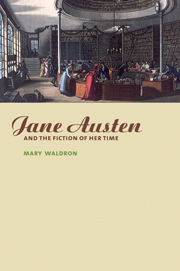Book contents
- Frontmatter
- Contents
- Acknowledgements
- Texts and abbreviations
- Introduction
- 1 The juvenilia, the early unfinished novels and Northanger Abbey
- 2 The non-heiresses: The Watsons and Pride and Prejudice
- 3 Sense and the single girl
- 4 The frailties of Fanny
- 5 Men of sense and silly wives – the confusions of Mr Knightley
- 6 Rationality and rebellion: Persuasion and the model girl
- 7 Sanditon – conclusion
- Notes
- Bibliography
- Index
1 - The juvenilia, the early unfinished novels and Northanger Abbey
Published online by Cambridge University Press: 22 September 2009
- Frontmatter
- Contents
- Acknowledgements
- Texts and abbreviations
- Introduction
- 1 The juvenilia, the early unfinished novels and Northanger Abbey
- 2 The non-heiresses: The Watsons and Pride and Prejudice
- 3 Sense and the single girl
- 4 The frailties of Fanny
- 5 Men of sense and silly wives – the confusions of Mr Knightley
- 6 Rationality and rebellion: Persuasion and the model girl
- 7 Sanditon – conclusion
- Notes
- Bibliography
- Index
Summary
Early in her reading experience Jane Austen became obsessively interested in the form and language of the novel, and in its relationship with its readers; her first experimental writing was dominated by attempts to refashion fiction as she knew it. With merciless disrespect she isolated elements which were at best formulaic, at worst perfunctory. Early burlesque shows Austen identifying popular narrative forms as hypnotic and thought-denying. She was moved to make hilarious fun of the wilder examples of the novel of sensibility, and some even wilder interpretations of the liberation ideologies of the French philosophes; but ordinary received moral wisdom was not exempt from her youthful scorn. Her earliest writing puts a number of fashionable fictional stereotypes, often derived from the pomposities of conduct-literature as well as from fashionable progressive ideas, into a domestic frame which renders them ludicrous and, more importantly, shows them to be repetitious and stultifying. From the start she set out to put forms and theories to the test of the everyday, without which they were, as she saw it, merely substitutes for coherent and rational deliberation.
The language of contemporary moral discourse fascinated her. She perceived very early that formulaic phrase-building can acquire the ring of truth, and she often parodies the typical Johnsonian antithetical maxim – for example, in the description of Lady Williams in Jack and Alice we are informed that: ‘Tho' Benevolent & Candid, she was Generous & sincere; Tho' Pious & Good, she was Religious & amiable, and Tho' Elegant and Agreable, she was Polished & Entertaining.’
- Type
- Chapter
- Information
- Jane Austen and the Fiction of her Time , pp. 16 - 36Publisher: Cambridge University PressPrint publication year: 1999



